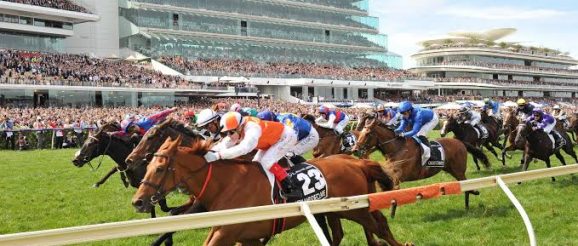Jockey Safety Innovation Potentially Hindered By RA Impasse

Potential improvements in jockey safety have been stalled by the crippled state of Racing Australia, which has not met for over two years.
Australian Jockeys Association Chief Executive Matt Hyland stipulated that Australian jockeys have never been better protected, and that vests, skull caps and racetracks are as safe as they can be.
But he said any potential improvements to the jockey kit – or even meaningful discussions about improvements – have been stalled by the stagnant state of RA, which is without a chief executive or chairman and has been boycotted by Racing NSW Chief Executive Peter V’landys.
Key issues of national importance such as the race Pattern, whip reform and continual vigilance over elements of jockey safety driven by a national authority have been in limbo for two years.
This stalemate comes as two interstate jockeys, Leah Kilner and Elissa Meredith are in intensive care after serious falls and Juana Andreou is in the Royal Melbourne Hospital after a stable mishap at Flemington.
Hyland said Victoria led the way with jockey safety, with plastic running rails implemented at every track in the state. Only NSW has lagged behind with wholesale introduction of plastic rails.
Hyland said Victoria had also led the way with the preparation of safe tracks.
And while there is no suggestion recent or previous race falls have been in any way caused by inferior tracks or safety gear, Hyland said it was frustrating that any potential innovation was on hold because of the dire RA situation.
Europe is exploring an advanced skull gap, where the sides are reinforced to better protect riders from heavy impact and the Japanese have invested in safety vests they believe are better than versions used in other jurisdictions, including Australia.
The Japanese vest does not have Standard status and can’t be used outside Japan.
Some jockeys believe the current riding vests in Australia are restrictive and do not offer the same level of spinal protection as some used overseas.
Racing Victoria said some discussions were being held regarding jockey safety, including equipment and road fatigue. Some jockeys spend up to eight hours on the road on some days. Safety around stables is also a focus for RV.
A spokesman said there was little sign of “movement at RA.”
“You might say they’re doing only enough to keep the lights on,” the spokesman said.
